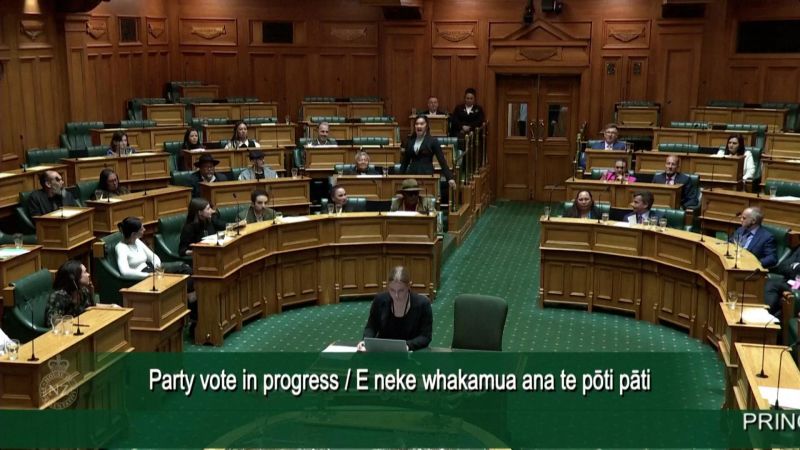
New Zealand MPs Shake Up Parliament with Powerful Haka in Indigenous Treaty Bill Protest
In a show of solidarity and protest against a proposed indigenous treaty bill in New Zealand, Members of Parliament recently disrupted normal proceedings by performing a traditional Maori haka in the parliament. The powerful and symbolic display of the haka—a traditional dance form of the Maori people known for its rhythmic chanting, vigorous movements, and expressions of strength and unity—served as a poignant expression of resistance and a call to action by the representatives.
The protest comes in response to the controversial bill that seeks to amend existing laws surrounding indigenous treaties and land rights. The Maori Members of Parliament, along with their supporters, expressed their concerns that the proposed changes could undermine the rights and sovereignty of indigenous peoples in New Zealand. The haka performed in parliament was not only a visual spectacle but also a deeply rooted cultural expression with historical significance.
The haka holds a special place in Maori culture, often performed during significant events to assert power, unity, and defiance. By bringing the haka into the parliamentary setting, the MPs effectively used a traditional cultural practice as a means of political activism and protest. The performance was a stark reminder of the enduring strength and resilience of indigenous communities in the face of adversity and marginalization.
The use of the haka as a form of protest underscores the interconnectedness of culture, identity, and political expression. Through this powerful display, the Maori MPs highlighted the importance of cultural heritage in shaping their political beliefs and actions. The haka served as a unifying force, bringing together the Maori representatives and their allies in a collective stance against perceived injustices.
Beyond its immediate impact on the parliamentary proceedings, the haka protest has sparked conversations and debates on indigenous rights, land sovereignty, and the broader implications of the proposed treaty bill. It has drawn attention to the ongoing struggles of indigenous communities worldwide in asserting their rights and preserving their cultural heritage in the face of modern challenges.
Ultimately, the performance of the haka in the New Zealand parliament serves as a testament to the enduring spirit of resilience and resistance among indigenous peoples. It sends a clear message that cultural traditions and political activism are intertwined forces that can be harnessed to advocate for social change and justice. As the echoes of the haka reverberate through the halls of parliament, they serve as a reminder of the indomitable strength and unity of indigenous communities fighting for their rights and recognition.
